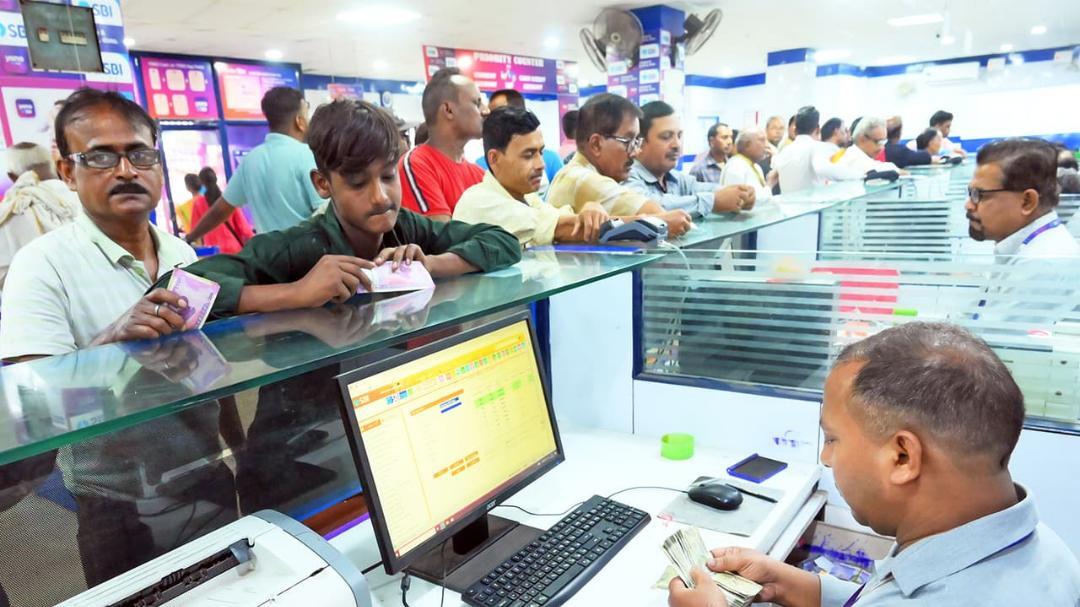
RBI’s Government Securities Holdings Jump to 14.2%: SBI Report
The Reserve Bank of India’s (RBI) share in government securities has witnessed a significant surge, rising to 14.2% in June 2025 from 11.9% last year, according to a recent report by the State Bank of India (SBI). This increase in the RBI’s holdings of government securities is a notable development, as it indicates a shift in the central bank’s investment strategy and its role in the country’s bond market.
The SBI report highlights that the RBI’s increased holding of government securities is largely due to the reduction in exposure by banks. Banks have been decreasing their investment in government securities, and this has been offset by the RBI’s increased purchases. On the other hand, insurance companies have maintained a stable holding of government securities, with their share remaining relatively unchanged.
The surge in the RBI’s government securities holdings has significant implications for the bond market. With heavy central and state borrowings ahead, bond yields are likely to stay rangebound. The RBI’s increased holdings of government securities will help to absorb some of the excess supply of bonds, thereby putting downward pressure on bond yields. However, the impact of this on the overall bond market will depend on various factors, including the RBI’s future investment strategy and the overall liquidity in the market.
Another factor that is expected to influence the bond market is the RBI’s foreign exchange interventions. The central bank has been actively intervening in the foreign exchange market to manage the value of the rupee. These interventions have resulted in a tightening of liquidity, which has prompted the RBI to undertake fresh Open Market Operations (OMO) to inject liquidity into the market. OMOs involve the purchase or sale of government securities by the RBI to regulate the money supply and influence interest rates.
The RBI’s increased holdings of government securities and its forex interventions are part of its broader monetary policy strategy. The central bank is walking a tight rope, as it seeks to balance the need to manage inflation with the need to support economic growth. The RBI’s actions will be closely watched by market participants, as they will have a significant impact on the bond market and the overall economy.
The SBI report also highlights the challenges faced by the RBI in managing the government’s borrowing program. The government has a significant borrowing requirement, and the RBI will need to balance its role as a banker to the government with its monetary policy objectives. The report notes that the RBI will need to carefully manage the bond market to ensure that the government’s borrowing program is successful, while also maintaining financial stability.
In conclusion, the RBI’s increased holdings of government securities are a significant development, with implications for the bond market and the overall economy. The central bank’s actions will be closely watched by market participants, as they will have a significant impact on interest rates, bond yields, and the overall liquidity in the market. As the RBI navigates the challenges of managing the government’s borrowing program and maintaining financial stability, its decisions will have far-reaching consequences for the Indian economy.
The SBI report provides valuable insights into the RBI’s investment strategy and its role in the bond market. The report highlights the complexities of the bond market and the challenges faced by the RBI in managing the government’s borrowing program. As the Indian economy continues to evolve, the RBI’s actions will play a critical role in shaping the country’s monetary policy and financial stability.
In the coming months, market participants will be closely watching the RBI’s actions, as they will have a significant impact on the bond market and the overall economy. The RBI’s ability to balance its role as a banker to the government with its monetary policy objectives will be crucial in maintaining financial stability and supporting economic growth.





